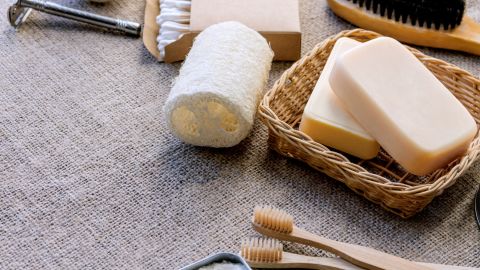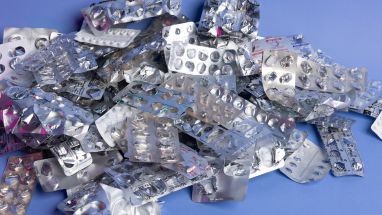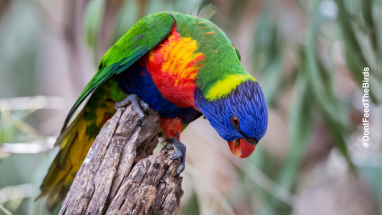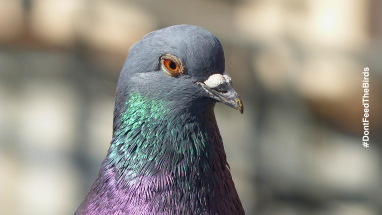As our plastic use continues to increase across the world, recycling plastics isn’t enough. The less we all use, the less we’ll need to treat. We need your help to reduce how much we throw away in the first place.
If packing your reusable coffee cup or bottle is already a daily habit, here are some advanced tips for living a more plastic-free life.
1. Change how you shop
Don't put your fruit and vegetables in plastic bags. Just leave them loose or consider buying a few reusable produce bags – you can get a 3-pack for less than $2 at major supermarkets. If you can, opt for items that are package-free or choose items packaged in cardboard or tin instead of soft plastic.
Think about plastic items you frequently buy and whether there is a way to avoid these. If you’re a fan of carbonated water, instead of purchasing it in single-use plastic bottles, consider getting a carbonator. It’s an investment but it will save you money in the long run.
2. Change where you shop
The supermarket is not a great place if you’re trying to cut out single-use plastic. Many items are packaged in plastic, including fresh produce. Try local markets, co-ops, bulk food stores and independent grocers instead.
Spending a Saturday or Sunday morning strolling around local farmers markets is not only fun, it’s also a good way to find local produce. By purchasing locally grown food in season, we’re eating foods at their most flavoursome and abundant, and least expensive.
If getting up early on weekends to make it to the farmers market isn't your cup of tea, you could find a local produce box system. These deliver straight to your door or a local pick-up point with minimal packaging.
3. Inspect your bathroom
Shampoo, conditioner, bodywash, handwash, toner, moisturiser... The list of plastic-packaged products goes on. But there are alternatives. Many of these products come in solid bars with minimal to no packaging. Instead of bodywash or handwash, use a bar of soap. Coconut oil can act as conditioner, moisturiser and makeup remover.
While you’re at it, switch to a recycled toilet paper that isn't packaged in plastic. Some brands deliver in bulk.
4. BYO takeaway container
Single-use plastics can be hard to avoid when ordering takeaway food. Often your favourite curries, stir fries, noodles and pastas come in plastic containers that you’ll use once and throw away. Try bringing your own re-useable container from home and ask your server to fill it instead. Alternatively, take your time, take a seat and eat in.
5. Swap plastic synthetics for natural fibres
Synthetic materials like nylon and polyester shed microfibres when washed. This means your clothes release millions of tiny plastic pieces into our drains. Look for natural materials, like cotton and wool instead.
Aside from materials, consider where you buy. Brands with quickly rotating collections contribute to the fashion industry being one of the biggest polluters in the world, second only to oil. Whether online or in a store, there are many places to find quality pre-loved fashion.
Loved items last, so look after your clothes by following care instructions and avoid joining 1 in 5 Australians who’ve thrown clothes in the bin after 1 wear.
Published 28 April 2021, updated 11 July 2023



